Alloy Steel Nut and Bolt Manufacturers, Suppliers in India – ASTM A193, ASTM A194, B7, B16, B8, B8M, Hex Nut & Bolt, Hex Jam Nut, Hex Flange Nut, Stud Bolts, Anchor Bolt
- Alloy Steel Nuts and Bolts Available on Sale, by India’s Largest Stockholder and Manufacturer. Alloy steel bolts are made from a high strength steel alloy and are further heat treated. Alloy steel bolts are typically not plated, resulting in a dull black finish. Alloy steel bolts are extremely strong but very brittle. Alloy Steel Grade Bolts / Nuts, which is highly used in commercial complexes. Chromium, vanadium, molybdenum, and tungsten in these Alloy Steel Grade Hex Head Bolts increase strength by forming second – phase carbides.
- A stud bolt consists of one threaded steel rod and two (matching) hexagonal heavy steel nuts. Stud bolts and nuts are essential components of flanged joints, as they are key to seal flanged joints properly. The ASTM A194 specification covers a variety of low carbon, medium carbon, alloy steel, and martensitic and austenitic stainless steel nuts. Hex heavy nuts are components of boltings sets for flanges. The ASME B16.5 specification covers stud bolts and nuts for ASME flanges. Stud bolts and nuts are available in multiple diameters and lengths combinations, metric and imperial, and in a variety of materials from carbon steel to alloy, stainless and nickel alloys. The material of the hex steel nuts shall match the material of the threaded rod (generally, stud materials ASTM A193 match with nuts materials ASTM A194).
- Metallica provides the value added services, such as the heat treating, cutting, machining, painting and assembly. Metallica makes it easy for you to source top quality alloy steel nuts and bolts at the lowest prices in India. We specialize in providing deliveries to your factory directly from our warehouse or our principal suppliers.
- We offer a wide selection of specialty alloy steel nuts and bolts; and best pricing for bulk nut orders. A complete range of alloy steel nuts and bolts are in stock and ready to dispatch. Specialty bolts ranging from tiny to extra long and even extra large bolts are available in many grades and drives.
- We are top manufacturers, stockholder and suppliers of alloy steel nuts and bolts in accordance with DIN, ASME, ASTM and ISO standards such as ASTM A193 (for bolts) and ASTM A194 (for nuts) and grades including B7, B16, B8 (Class 1 & 2), B8M (Class 1 & 2). All our alloy steel nuts and bolts are supplied with 3.1 specific test certificates, according to EN 10204. Certification according to 3.2 can be agreed at the time of ordering.
Manufacturing Fasteners – Alloy Steel Nut, Bolts, Screws & Washers
Alloy steel fasteners, nuts, bolts and screws are generally manufactured by two processes namely cold forging and hot forging.
- The cold forging process is generally used for manufacturing small size fasteners while hot forging process is used for large size bolts and nuts. The cold forging process starts with large steel wire rods, which are uncoiled and cut to length. This is followed by pressure forging, cold extrusion and reducing, or a combination of these procedures, followed by heat treating to improve strength and surface treating to improve durability.
- Many other fasteners are also produced by the cold forming or forging process especially for producing large quantities, as it reduces the cost of production. The choice of the suitable forming machine depends on the size of the fastener and on the degree of forming. The greater the degree of forming, the more forming stages are required.
- Screws are usually produced by cold forming process where in we usually receive the wire coiled on rolls.
- Heat treatment process is used after the fastener production to increase the strength or control the mechanical properties of fasteners.
- Nuts are usually produced with the cold or hot forming procedure as well. The choice of one or the other procedure depends on the one hand on the size and on the other on the required quantities.
- The hot forging or forming production method is used mainly to manufacture large diameters starting with approx. M27, and longer pieces starting from approx. 300 mm. In addition, parts are possible that cannot be produced using cold forming because of the very small volumes, or because of a very high degree of forming.
- Washers are produced by punching or forming process. The manufacturing process starts with making of punching die as per the required internal and external diameter of washer.
Chemical Composition of Alloy Steel Nuts and Bolts
| Element | B7 | B8 | B8M |
| Carbon | 0.37 – 0.49% | 0.08% max | 0.08% max |
| Manganese | 0.65 – 1.10% | 2.00% max | 2.00% max |
| Phosphorus, max | 0.04% | 0.05% | 0.05% |
| Sulfur, max | 0.04% | 0.03% | 0.03% |
| Silicon | 0.15 – 0.35% | 1.00% max | 1.00% max |
| Chromium | 0.75 – 1.20% | 18.0 – 20.0% | 16.0 – 18.0% |
| Nickel | 8.0 – 11.0% | 10.0 – 14.0% | |
| Molybdenum | 0.15 – 0.25% | 2.00 – 3.00% |
Material Specification of Alloy Steel Nuts and Bolts
| Grade | Material |
| B7 | Alloy steel, AISI 4140/4142 quenched and tempered |
| B16 | Alloy steel, Chromium-molybdenum-vanadium heat treated |
| B8 | Class 1 Stainless steel, AISI 304, carbide solution treated |
| B8M | Class 1 Stainless steel, AISI 316, carbide solution treated |
| B8 | Class 2 Stainless steel, AISI 304, carbide solution treated, strain hardened |
| B8M | Class 2 Stainless steel, AISI 316, carbide solution treated, strain hardened |
| B7, B8 and B8M are the most commonly used grades. The properties tables below provide more information on the differences between the grades. | |
Types of Alloy Steel Nuts and Bolts
| Hex Nuts | Socket Head Bolts |
| Wing Nuts | Eyelet Bolts |
| Square Nuts | Carriage Bolts |
| Cap Nuts | Stud Bolts |
| Hex Top Lock Nut (Nylon Lock Nut or Metal Lock Nut) | Elevator Bolts |
| Hex Slotted Nuts | Square Bolts |
| Hex Flange Nuts | Flange Head Bolts |
| Hex Jam Nuts | Stud Bolts |
| Hex Bolts in M3 – M160 | Cap Bolts |
| Plow Bolts | U Bolts |
We Manufacture and Supply Multiple Steel Grades and Finishes for Bolts with choices of small to large and short to extra Long Bolt Sizes
| Alloy Steel Hex Head Bolt | ASTM A193 Alloy Steel Hex Head Bolt |
| Alloy Steel Hex Head Bolts | |
| Alloy Steel Square Bolt | Alloy Steel Square Bolts |
| ASTM A193 Alloy Steel Square Bolt | |
| Alloy Steel U Bolt | Alloy Steel U Bolts |
| Chrome Moly U Bolt | |
| ASTM A193 Alloy Steel U Bolt | |
| Alloy Steel Eye Bolt | Alloy Steel Eye Bolt |
| Chrome Moly Eye Bolts | |
| ASTM A193 Alloy Steel Eye Bolt | |
| Alloy Steel T Bolt | Alloy Steel T Bolt |
| Chrome Moly T Bolts | |
| ASTM A193 Alloy Steel T Bolt | |
| Alloy Steel Hex Bolt | Alloy Steel Hex Bolt |
| Chrome Moly Hex Bolts | |
| ASTM A193 B6 Alloy Steel Hex Bolt | |
| Alloy Steel Lag Bolt | Alloy Steel Lag Bolts |
| AS Lag Bolt | |
| ASTM A193 Alloy Steel Lag Bolt | |
| Alloy Steel Counter sunk Bolt | Alloy Steel Counter sunk Bolt |
| Chrome Moly Counter sunk Bolts | |
| ASTM A193 Counter sunk Bolt | |
| Alloy Steel Hex Head Nut | Alloy Steel Hex Head Nut |
| Chrome Moly Hex Head Nut | |
| ASTM A193 B6 Alloy Steel Hex Head Nut | |
| Alloy Steel Square Nut | Alloy Steel Square Nut |
| Chrome Moly Square Nuts | |
| ASTM A193 Alloy Steel Square Nut | |
| Alloy Steel Lock Nut | Alloy Steel Lock Nuts |
| AS Lock Nut | |
| ASTM A193 Alloy Steel Lock Nut | |
| Alloy Steel Eye Nut | Alloy Steel Eye Nuts |
| AS Eye Nut | |
| ASTM A193 Alloy Steel Eye Nut | |
| Alloy Steel wing Nut | Alloy Steel wing Nut |
| Chrome Moly wing Nuts | |
| ASTM A193 Alloy Steel wing Nut | |
| Alloy Steel T Nut | Alloy Steel T Nuts |
| ASTM A193 Alloy Steel T Nut | |
| Alloy Steel Panel Nut | Alloy Steel Panel Nuts |
| AS Panel Nut | |
| ASTM A193 Alloy Steel Panel Nut | |
| Alloy Steel Coupling Nut | Alloy Steel Coupling Nuts |
| AS Coupling Nut | |
| ASTM A193 Alloy Steel Coupling Nut | |
| Alloy Steel Dome Nut | Alloy Steel Dome Nut |
| AS Dome Nuts | |
| ASTM A193 Alloy Steel Dome Nut | |
| Alloy Steel Acorn Nut | Alloy Steel Acorn Nut |
| Chrome Moly Acorn Nuts | |
| ASTM A193 Alloy Steel Acorn Nut |

Alloy Steel Hex Nuts
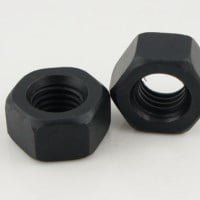
Alloy Steel Nuts with Black Oxide Finish

Alloy Steel Nuts with Zinc Coating
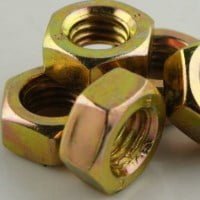
Alloy Steel Nuts with Zinc Coating

Alloy Steel Nylon Insert Lock Nut
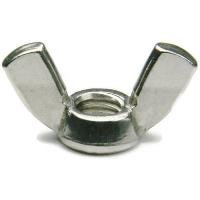
Alloy Steel Wing Nut
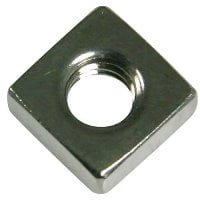
Alloy Steel Square Nut
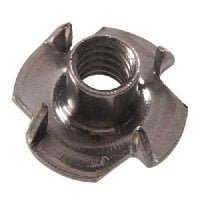
Alloy Steel T NUT (Tee Nut)

Alloy Steel K Nut

Alloy Steel Hex Slotted Nut

Alloy Steel Hex Long Nuts
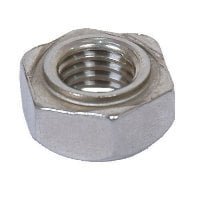
Alloy Steel Weld Nuts

Alloy Steel Dome Cap Nut
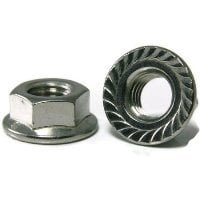
Alloy Steel Hex Flange Nut
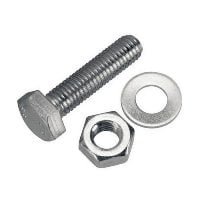
Alloy Steel Hex & Heavy Hex Bolt

Alloy Steel U Bolts
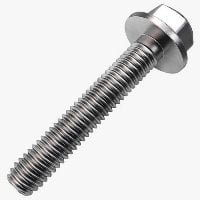
Alloy Steel Stud Bolts

Alloy Steel Anchor Bolt with Nut and Washer
Alloy Steel Nut Specifications, Stock & Production Range
| Product | Alloy Steel Nuts and Bolts |
| Grades | B7, B16, B8 (Class 1 & 2), B8M (Class 1 & 2) |
| Standards | ASTM A193, ASTM A194 |
| Size Range | M3 – M56 | 3/6″ to 2″. Can be made customized |
| Length | Upto 5m |
| Application | Water projects, water pipelines, sewage water treatment plants, desalination plants and waste water treatment plants |
| Finish | Bright polished and cleaned, Plain, black, zinc plated (Cr,3+), zinc plated(Cr,6+), hot dipped galvanized, dacromet, nickel plated, cadmium plated, etc. |
| Packing | In Bulk: Canton/pallet, Small Boxes/carton/ pallet, or customer request |
| Bolt Drives | Allen or socket drive, hex head drive, Torx drive and square drives. |
| Threads | Bolts can come fully or partially threaded depending on the bolt type. International Organization for Standardization (ISO) standards for threads are: length is twice the diameter of the bolt plus 1/2 inch. If you are looking for fully threaded bolts please call direct at 800-872-5557 |
| Tests Performed | Hardness tests, proof of load tests, and cone proof load tests shall be made to all nuts to meet the requirements specified. |
| Test Certificate | Manufacturer Test Certificate as per EN 10204 / 3.1 |
- Email Us on info@metallicametals.com for best prices on various types of Alloy Steel Hex Nuts
Types of Alloy Steel
There are 2 major types of alloy steel.
1. High-Alloy Steel: –
High-alloy steels are defined by a high percentage of alloying elements. The most common high-alloy steel is stainless steel, which contains at least 12 percent chromium. Stainless steel is generally split into three basic types: martensitic, ferritic, and austenitic. Martensitic steels contain the least amount of chromium, have a high hardenability, and are typically used for cutlery. Ferritic steels contains 12 to 27 percent chromium and are often used in automobiles and industrial equipment. Austenitic steels contain high levels of nickel, carbon, manganese, or nitrogen and are often used to store corrosive liquids and mining, chemical, or pharmacy equipment.
2. Low-Alloy Steel:-
Low-alloy steels have a much lower percentage of alloying elements, usually 1 to 5 percent. These steels have very different strengths and uses depending on the chosen alloy. Large diameter flanges manufacturers typically choose alloys for a specific mechanical property. The variety of potential alloys makes low-alloy steel useful for a variety of projects, including seamless rolled ring forging and studding outlet manufacturing.
While there are a lot of different alloying elements that can be used to improve the mechanical properties of steel, certain combinations are used often and there are different types of alloy steel that are more popular than others.
High strength low alloy (HSLA) steel is an alloy that provides greater atmospheric corrosion resistance and high strength. There are six different classifications of HSLA steel, with varying alloying elements used. Typically, vanadium, niobium, titanium, and copper are used to provide the increased strength, and copper, chromium, phosphorus, and silicon are used to increase corrosion resistance. Due to the high strength of HSLA steels, they can often be harder to form, in some cases calcium or zirconium are added to improve formability. Chrome moly is another common alloy steel. This material is an alloy of chromium and molybdenum, which improves hardenability, increase strength, high temperature resistance, corrosion, and oxidation resistance.
| ALLOY | SPECIFICATION | MAXIMUM USEFUL TEMPERATURE |
| Carbon-steel | SA178, SA192, | 850° |
| SA210, SA106, | ||
| SA515, SA516 | ||
| Carbon-1/2 | SA209 | 900° |
| Molybdenum | ||
| 1 1/4 Chromium- | SA213 T-11 | 1025° |
| 1/2 Molybdenum | SA335 P-11 | |
| 2 1/4 Chromium- | SA213 T-22 | 1075° |
| 1 Molybdenum | SA335 P-22 | |
| 18 Chromium- | SA213 TP304(H), | 1500° |
| 10 Nickel | 321(H), 347(H) |
Applications of Alloy Steel Nuts and Bolts
- Alloy Steel Bolts and nuts for water projects, water pipelines, sewage water treatment plants,desalination plants and waste water treatment plants.
- Bolts and nuts are used in several applications, with a primary function to hold things or components together. A bolt, also known as a screw, does not always have to be used together with a nut; however, a nut is always used together with a bolt.
- The purpose of inserting bolts into other materials is to bind that material with another object. For example if one material is required to be bonded with another, a bolt could be run through these two materials and a nut on the other side could be used to secure the materials together tightly.
- Nuts and bolts serve as the fundamental components in several construction projects as they provide strong bonds that do not break even under great amounts of pressure.
- For companies involved in Equipment Manufacturing, Mining, Oil Refineries, Chemical manufacturing, Steel and Aluminum Manufacturing, Utilities and Transportation, and Industrial Construction.
Advantages of Alloy Steel Nuts and Bolts. Difference Between Alloy Steel Bolts and Welding/Riveting
- Light weight
- Flexibility
- Toughness
- Chemically Inert
- Resistance to Abrasion
- Smooth surface
- Environmental stress crack resistance
- Corrosion resistance
- Frost & rodent resistance
- Hygienic safety
- Easy & quick installation
- Non-magnetic
- Easy Availability
- Inexpensive
- Alloy Steel Bolts Have an Excellent Life Cycle
- Better Visual appeal
- Easier Replacement of Parts
- In some important cases, some anti-loose measures will be taken to ensure the reliability of the nut locking. The use of lock nut is one of the anti-loose measures. The working principle of the nut is self-locking by the friction between the nut and the bolt.
- They are easily disassembled, as opposed to something like riveting or welding, which requires cutting.
- They can be designed to take tension loads, unlike riveting (by tightening the bolt/nut to develop a preload, you reduce the effects of fatigue due to cyclic loading, which you can’t do with a rivet; plus, rivets can easily pull through a hole when loaded in tension).
- Welds require heating a metal, which can change the properties in the heat-affected zone, and can also create thermal stresses. Bolts avoid this problem. You’re also not likely to start a fire (welds) or breathe toxic fumes (welds and adhesive joints) when you’re installing a bolt.
- Bolted joints aren’t particularly sensitive to the condition of the parent material. With welds and adhesive joints, the parent material needs to be clean, free of oils, etc (and obviously, it has to be metal to weld).
- You can put a bolt in a blind hole (one that doesn’t go all the way through the material); you can’t use a rivet.
- Bolts are easy. Welding takes a lot of skill and a lot of time, particularly if you’re going to inspect the weld for flaws after it’s completed. But just about everybody has used a wrench.
- Bolts offer much better joint quality than a screw, mostly because the threads are more tightly controlled.
Disadvantages of Alloy Steel Nuts and Bolts
- Difficulty of Refastening
- Forced Precision
- The working principle of the nut is self-locking by the friction between the nut and the bolt. However, the reliability of this self-locking in dynamic loads is reduced.
- They require access to both sides of the joint (although this can be overcome using studs or special bolts like Hi-Loks). Welding, adhesive joints, and some types of riveting can be done with access to only one side of the joint.
- They can become loose over time as the nut backs off (this can be addressed to some extent by using the proper preload and thread-locking features) or as the material creeps. Welding and adhesive joints don’t have this problem.
- They require holes, which introduce stress concentrations and more failure modes; drilling the holes may create cracks which will grow over time to cause failure. Welding and adhesive joints don’t require holes. Also, welds and adhesive joints are continuous, so they don’t concentrate load like a bolt does.
- Preload can be tough to measure accurately – it depends on the method of tightening, the friction between the threads of the bolt and the nut, etc.
- Complexity. A bolted joint adds to a part count – a bolt, a nut, washers, thread lubricant, thread locking compound. And the bolts, nuts, and washers come in specific sizes with specific threads, with specific hole sizes and tolerances, for specific applications – if you need a high quality joint, you’ve got to keep track of all that and make sure the right bolt is used in the right place and in the right way.
- Damage to a threaded hole is tough to replace – you can drill it out and rethread, but using a larger bolt might change your load distribution. To avoid that, you can use an insert in the parent material – basically a tube that is threaded on the outside and on the inside, but that adds complexity. (Of course, all this is related to the advantage of actually being able to disassemble and reassemble a bolted joint, so you might not actually call it a disadvantage compared to other fastening processes.)
- Corrosion between a bolt and the parent material should be considered. This may not be a problem with welding and adhesive joints if the parent materials being welded are compatible.
- Bolted joints require a gasket to seal a joint. A weld (if done properly) will be leak-proof.
- Bolted joints aren’t so easy after all – I know of robots that weld, but the manual dexterity needed to install a bolt still requires a human touch. (Although if you have a job installing bolts, you might consider this an advantage!)
- Stainless Steel 304/304L Hex Nuts
- Stainless Steel 304H Hex Nuts
- Stainless Steel 310/310S Hex Nuts
- Stainless Steel 316/316L Hex Nuts
- Stainless Steel 316Ti U Hex Nuts
- Stainless Steel 317/317L Hex Nuts
- Stainless Steel 321/321H Hex Nuts
- Stainless Steel 347 Hex Nuts
- Stainless Steel 347H Hex Nuts
- Stainless Steel 410 Hex Nuts
- Stainless Steel 446 Hex Nuts
- Stainless Steel 904L Hex Nuts
- Alloy Steel B6 Hex Nuts
- Alloy Steel B7 Hex Nuts
- Alloy Steel B7M Hex Nuts
- Alloy Steel B16 Hex Nuts
- Alloy Steel 2 Hex Nuts
- Alloy Steel 2HM Hex Nuts
- Alloy Steel 2H Hex Nuts
- Alloy Steel GR 6 Hex Nuts
- Alloy Steel GR 7 Hex Nuts
- Alloy Steel GR 7M Hex Nuts
Hastelloy Hex Nuts
- Hastelloy C22 Hex Nuts
- Hastelloy C276 Hex Nuts
- Hastelloy B2 Hex Nuts
- Hastelloy B3 Hex Nuts
- Hastelloy X Hex Nuts
Nickel Hex Nuts
- Nickel 200 Hex Nuts
- Nickel 201 Hex Nuts
Special Alloy Hex Nuts
- Alloy 20 Hex Nuts
- SMO 254 Hex Nuts
- AISI 4130 Hex Nuts
- Aluminium Hex Nuts
- Alloy A286 Hex Nuts
- 17-4ph Hex Nuts
- Aluminium Hex Nuts
Duplex Steel Hex Nuts
- Duplex Steel S31803 / S32205 Hex Nuts
- Super Duplex Steel S32750/ S32760 Hex Nuts
Titanium Hex Nuts
- Titanium Gr 2 Hex Nuts
- Titanium Gr 5 Hex Nuts
Inconel Hex Nuts
- Inconel 600 Hex Nuts
- Inconel 601 Hex Nuts
- Inconel 625 Hex Nuts
- Inconel 718 Hex Nuts
Incoloy Hex Nuts
- Incoloy 800 / 800H / 800HT Hex Nuts
- Incoloy 825 Hex Nuts
- Incoloy 925 Hex Nuts
- Incoloy 330/ SS 330/ Ra 330 Hex Nuts
Monel Hex Nuts
- Monel 400 Hex Nuts
- Monel K500 Hex Nuts
Cupro Nickel Hex Nuts
- Cupro Nickel 90 / 10 Hex Nuts
- Cupro Nickel 70 / 30 Hex Nuts
- Copper Hex Nuts
- Brass Hex Nuts
- Low Carbon Steel Hex Nuts
- Middle Carbon Steel Hex Nuts
- High Carbon Hex Nuts
- High Strength Hex Nuts
Testing & Inspection of Alloy Steel Nuts and Bolts
Testing (Destructive, Non Destructive)
| Positive Material Identification – PMI Testing | Hydrostatic Test |
| Chemical Analysis – Spectro Analysis | Hydrogen-Induced Cracking (HIC) Test |
| Mechanical Testing Such as Tensile, Elongation, Reduction of Area | Sulfide Stress Corrosion Cracking (SSC), NACE TM 0177 |
| Micro Test | Radiography Test |
| Macro Test | Dye Penetrant Test (DP Test) |
| Hardness Test | Ultra Sonic Test (UT) |
| Pitting Resistance Test | Eddy Current Testing |
| Intergranular Corrosion (IGC) Test | Impact Test |
| Flaring Test | Bend Test |
| Flattening Test |
Inspection
- Our internal inspection reports would be provided for all the goods before shipment.
- Buyers or their associates are most welcome to visit us for personal inspect
- We regularly have inspections ongoing at our premises from internationally acclaimed Inspection Agencies such as TUV, BVIS, SGS, Llyods, DNV etc.
Prices for Alloy Steel Nuts and Bolts
Prices for alloy steel nut and bolt products are directly co related to prices of the raw materials such as iron ore, metal scrap, chromium, nickel and various other alloying elements. The production cost of heat resistant stainless steel and nickel alloy nuts is high as they contain high amount of nickel and chromium. Meanwhile, mild steel material is among the lowest cost steel available, followed by carbon steel, 400 series stainless steels, aluminium, alloy steel, and 300 series stainless steel. Special alloys such as titanium, Inconel, Monel and Hastelloy cost very high as the nickel, chromium and moly content is very high.
For special and discounted prices for various types of alloy steel nut and bolt products, please feel free to contact us through email, phone or whatsapp.
We are also regularly publishing our price list for various steel products on our blog.
Documents Provided – Domestic Sales or Export of Alloy Steel Nuts and Bolts
| Certificate of Origin | Raw Material Test Reports |
| Commercial Invoice | Heat Treatment Charts |
| Packing List | Quality Assurance Plan (QAP) |
| Fumigation Certificates | NABL approved Laboratory Test Reports |
| Letter of Guarantee | Material Test Certificates |
| ROHS Certificate | Certificate of Compliance/Conformity |
Price Terms for Alloy Steel Nuts and Bolts
We can offer any of the following price basis depending on your requirement:
- Ex-works
- FOR Site in India
- FOB Nhava Sheva
- CFR, CIF, CPT your destination port
- Door to Door Delivery Duty Paid as well as Duty Unpaid
Delivery Time of Alloy Steel Nuts and Bolts
- If the items are available in stock, we take 2 days from the date of receipt of advance payment to clear the shipment and send it to port.
- And in-case the items are not available in stock, the time taken for manufacturing depends on the size, quantity and grade.
- However we can claim the fact that we can compete with anyone in India on Delivery time and most of the time our production time is the least.
- We have tied up with strong logistic partners in India which can undertake any type of shipping activities and make sure that there is no delay in shipment.
Marking & Packing of Alloy Steel Nuts and Bolts
- All our products will have complete marking details which are co-related to the test certificates we supply.
- In case of orders for cut piece of Pipes, Sheets or Round Bars, the marking is transferred from the product from which it is cut. In such cases we provide Letter confirming the marking transfer and picture of the product from which it is cut.
- All goods are packed in wooden cases or pallets.
Suppliers of Alloy Steel Nuts and Bolts in India
Mumbai, Delhi, Bangalore, Hyderabad, Ahmedabad, Chennai, Kolkata, Surat, Pune, Jaipur, Visakhapatnam, Kanpur, Nagpur, Lucknow, Thane, Bhopal, Indore, Pimpri Chinchwad, Patna, Vadodara, Ghaziabad, Ludhiana, Agra, Nashik, Faridabad, Meerut, Rajkot, Kalyan-Dombivli, Vasai-Virar, Varanasi, Srinagar, Aurangabad, Dhanbad, Amritsar, Navi Mumbai, Allahabad, Howrah, Ranchi, Gwalior, Jabalpur, Coimbatore, Vijayawada, Jodhpur, Madurai, Raipur, Chandigarh, Guntur, Guwahati, Solapur, Hubli–Dharwad, Mysore, Tiruchirappalli, Bareilly, Moradabad, Tiruppur, Gurgaon, Aligarh, Jalandhar, Bhubaneswar, Salem, Mira-Bhayandar, Warangal, Jalgaon, Kota, Bhiwandi, Saharanpur, Gorakhpur, Bikaner, Amravati, Noida, Jamshedpur, Bhilai, Cuttack, Firozabad, Kochi, Nellore, Bhavnagar, Dehradun, Durgapur, Asansol, Rourkela, Nanded, Kolhapur, Ajmer, Akola, Gulbarga, Jamnagar, Ujjain, Loni, Siliguri, Jhansi, Ulhasnagar, Jammu, Sangli-Miraj & Kupwad, Mangalore, Erode, Belgaum, Ambattur, Tirunelveli, Malegaon, Gaya, Thiruvananthapuram, Udaipur, Kakinada, Davanagere, Kozhikode, Maheshtala, Rajpur, Sonarpur, Rajahmundry, Bokaro, South Dumdum, Bellary, Patiala, Gopalpur, Agartala, Bhagalpur, Muzaffarnagar, Bhatpara, Panihati, Latur, Dhule, Tirupati, Rohtak, Sagar, Korba, Bhilwara, Berhampur, Muzaffarpur, Ahmednagar, Mathura, Kollam, Avadi, Kadapa, Kamarhati, Sambalpur, Bilaspur, Shahjahanpur, Satara, Bijapur, Kurnool, Rampur, Shimoga, Chandrapur, Junagadh, Thrissur, Alwar, Bardhaman, Kulti, Nizamabad, Parbhani, Tumkur, Khammam, Ozhukarai, Bihar Sharif, Panipat, Darbhanga, Bally, Aizawl, Dewas, Ichalkaranji, Karnal, Bathinda, Jalna, Eluru, Barasat, Kirari Suleman Nagar, Purnia, Satna, Mau, Sonipat, Farrukhabad, Durg, Imphal, Ratlam, Hapur, Arrah, Anantapur, Karimnagar, Etawah, Ambarnath, North Dumdum, Bharatpur, Begusarai, New Delhi, Gandhidham, Baranagar, Tiruvottiyur, Pondicherry, Sikar, Thoothukudi, Rewa, Mirzapur, Raichur, Pali, Ramagundam, Haridwar, Vijayanagaram, Tenali, Nagercoil, Sri Ganganagar, Karawal Nagar, Mango, Thanjavur, Bulandshahr, Uluberia, Katni, Sambhal, Singrauli, Nadiad, Secunderabad, Naihati, Yamunanagar, Bidhannagar, Pallavaram, Bidar, Munger, Panchkula, Burhanpur, Raurkela Industrial Township, Kharagpur, Dindigul, Gandhinagar, Hospet, Nangloi Jat, Malda, Ongole, Deoghar, Chapra, Haldia, Khandwa, Nandyal, Morena, Amroha, Anand, Bhind, Bhalswa Jahangir Pur, Madhyamgram, Bhiwani, Berhampore, Ambala, Morbi, Fatehpur, Raebareli, Mahaboobnagar, Chittoor, Bhusawal, Orai, Bahraich, Vellore, Mehsana, Raiganj, Sirsa, Danapur, Serampore, Sultan Pur Majra, Guna, Jaunpur, Panvel, Shivpuri, Surendranagar Dudhrej, Unnao, Chinsurah, Alappuzha, Kottayam, Machilipatnam, Shimla. Adoni, Udupi, Katihar, Proddatur, Saharsa, Hindupur, Sasaram, Hajipur, Bhimavaram, Kumbakonam, Dehri, Madanapalle, Siwan, Bettiah, Guntakal, Srikakulam, Motihari, Dharmavaram, Gudivada, Phagwara, Narasaraopet, Suryapet, Miryalaguda, Tadipatri, Karaikudi, Kishanganj, Jamalpur, Ballia, Kavali, Tadepalligudem, Amaravati, Buxar, Jehanabad, Aurangabad, Gangtok
Exporters of Alloy Steel Nuts and Bolts
- America: Antigua and Barbuda, Argentina, Aruba, Bahamas, Barbados, Belize, Bermuda, Bolivia, Brazil, Canada, Cayman Islands, Chile, Colombia, Costa Rica, Cuba, Dominica, Dominican Republic, Ecuador, El Salvador, Grenada, Guatemala, Guyana, Haiti, Honduras, Jamaica, Mexico, Nicaragua, Panama, Paraguay, Peru, Puerto Rico, Suriname, Trinidad and Tobago, United States, Uruguay, Venezuela
- Europe – Albania, Andorra, Austria, Belarus, Belgium, Bosnia and Herzegovina, Bulgaria, Croatia, Cyprus, Czech Republic, Denmark, Estonia, Euro area, Faroe Islands, Finland, France, Germany, Greece, Hungary, Iceland, Ireland, Isle of Man, Italy, Kosovo, Latvia, Liechtenstein, Lithuania, Luxembourg, Macedonia, Malta, Moldova, Monaco, Montenegro, Netherlands, Norway, Poland, Portugal, Romania, Russia, Serbia, Slovakia, Slovenia, Spain, Sweden, Switzerland, Turkey, Ukraine, United Kingdom
- Africa – Algeria, Angola, Benin, Botswana, Burkina Faso, Burundi, Cameroon, Cape Verde, Central African Republic, Chad, Comoros, Congo, Djibouti, Egypt, Equatorial Guinea, Eritrea, Ethiopia, Gabon, Gambia, Ghana, Guinea, Guinea Bissau, Ivory Coast, Kenya, Lesotho, Liberia, Libya, Madagascar, Malawi, Mali, Mauritania, Mauritius, Morocco, Mozambique, Namibia, Niger, Nigeria, Republic of the Congo, Rwanda, Sao Tome and Principe, Senegal, Seychelles, Sierra Leone, Somalia, South Africa, South Sudan, Sudan, Swaziland, Tanzania, Togo, Tunisia, Uganda, Zambia, Zimbabwe
- Asia – Afghanistan, Armenia, Azerbaijan, Bahrain, Bangladesh, Bhutan, Brunei, Cambodia, China, East Timor, Georgia, Hong Kong, Indonesia, Iran, Iraq, Israel, Japan, Jordan, Kazakhstan, Kuwait, Kyrgyzstan, Laos, Lebanon, Macao, Malaysia, Maldives, Mongolia, Myanmar, Nepal, Oman, Palestine, Philippines, Qatar, Saudi Arabia, Singapore, South Korea, Sri Lanka, Syria, Taiwan, Tajikistan, Thailand, Turkmenistan, United Arab Emirates, Uzbekistan, Vietnam, Yemen
- Australia – Australia, Fiji, Kiribati, New Caledonia, New Zealand, Papua New Guinea, Samoa, Solomon Islands, Tonga, Vanuatu
